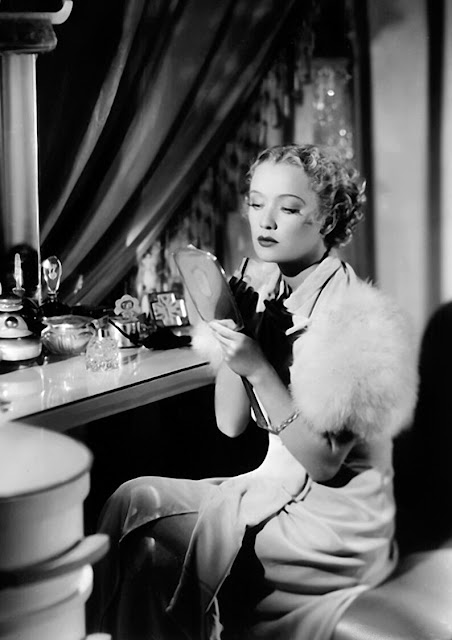Kazan on Cat On A Hot Tin Roof: Hungers Must Be Met
 |
| Ben Gazzara, Barbara Bel Geddes, and Burl Ives in the original production of Cat on a Hot Tin Roof, Morosco Theatre, New York, 1955. |
Interview with Elia Kazan
New York
1993
Portion of interview from the forthcoming Artistic Suicide
Tennessee and I gave birth to that play, in a way that did not exist with the other plays. There was just too much of Cat to realistically present on a stage, so there was a great deal of editing, but I did not rewrite or rearrange the play: Tenn did all of the revisions. I'm not about to tell you that he was happy with all of them, but he did them. No gun or other weapons were held to his head, his heart, or his feet to make them. He wanted his play to work. The play works. But it was revised, reborn.
The play is about survival, first of all: A subject all of us deal with, obsess over, deny, craft, avoid, then ultimately confront, sometimes violently. Okay, fine, it's about survival, but what are the various ingredients we pack up to tackle survival? Well, there's identity, and everyone in the play is struggling with the identity they are dealt or which they refuse to face. Brick is lost because he cannot or will not face the facts of his life: He is an alcoholic homosexual, chained, as if a slave, to his identity as a member of a rich, racist, powerful family. He does not want to be the person his heritage has forced him to be, and he does not want to be the person crafted by his appetites. So he floats--on a sea of alcohol, in a raft built of lies and coated with nocturnal emissions of Skipper--and watches as people more proactive try to save him. They save him for their own needs, of course. This is life; this is reality.
Big Daddy needs him as his son, his heir, his lineage. Big Daddy does not want to be forgotten, and he does not want to be known as the father of a failure. He cannot adequately fight cancer, but he believes, as many still do, that he can fight what reality has left at the front door. This is futile, but it's all he has. His current reality--which does not honor history or bank accounts--is that he is a dying man with a drunk faggot for a son, but he loves him, needs him, is determined to prop him up and have him carry on the family name. Everyone else around Big Daddy is obvious in their claims on his assets, and while he hates mendacity, he has more respect for the lies of those he loves (Brick) or those he admires and understands (Maggie) than those who are nothing more than avaricious (Gooper and Mae). Tennessee described Gooper and Mae as every bit as deserving of their needs as Maggie, but they do not possess the ability to craft a life, a new reality, as Maggie does. Maggie is an artist; Mae is merely a need, a walking lacuna that needs to be filled with children, money, attention. If Mae had the imagination to craft a persona we all could admire, it would be her play, and we would want her to win, to survive. But plays need villains, contrasts, and Mae will suffice.
Big Mama is of a time when a wife, a woman, was simply a footnote to her man, and the thought of losing Big Daddy unmoors her. Essentially, when he dies, so does she. There will be no need for her. The power, the titles, the fiduciary control will pass to Brick, and then what will happen? She'll age and wither upstairs, and Brick will---what?
'That,' Tenn told me, 'is the tragedy the audience can take home. We don't know what will happen.' But Tenn told me one night that Maggie will run the plantation, all the while giving credit to her soiled man. This is what noble women do.
We need to survive. Our names need to roll on and matter. Our hungers must be met. Our hungers often destroy us, even as they define us.
It was a fascinating, wonderful time, working on that play.
TO BE CONTINUED


Comments
Post a Comment
Thank you for your comments. The moderators will try to respond to you within 24 hours.